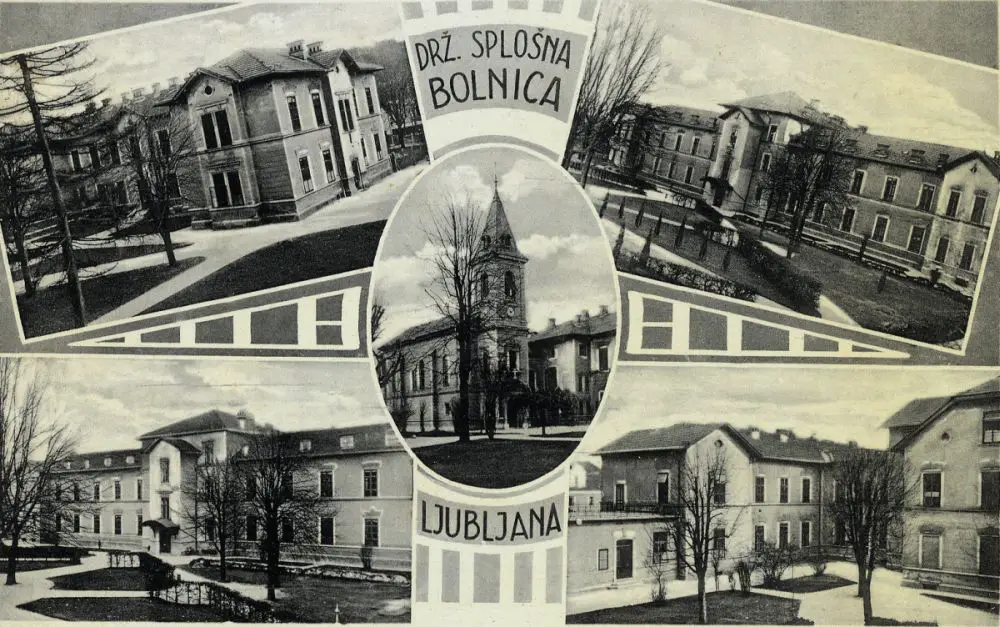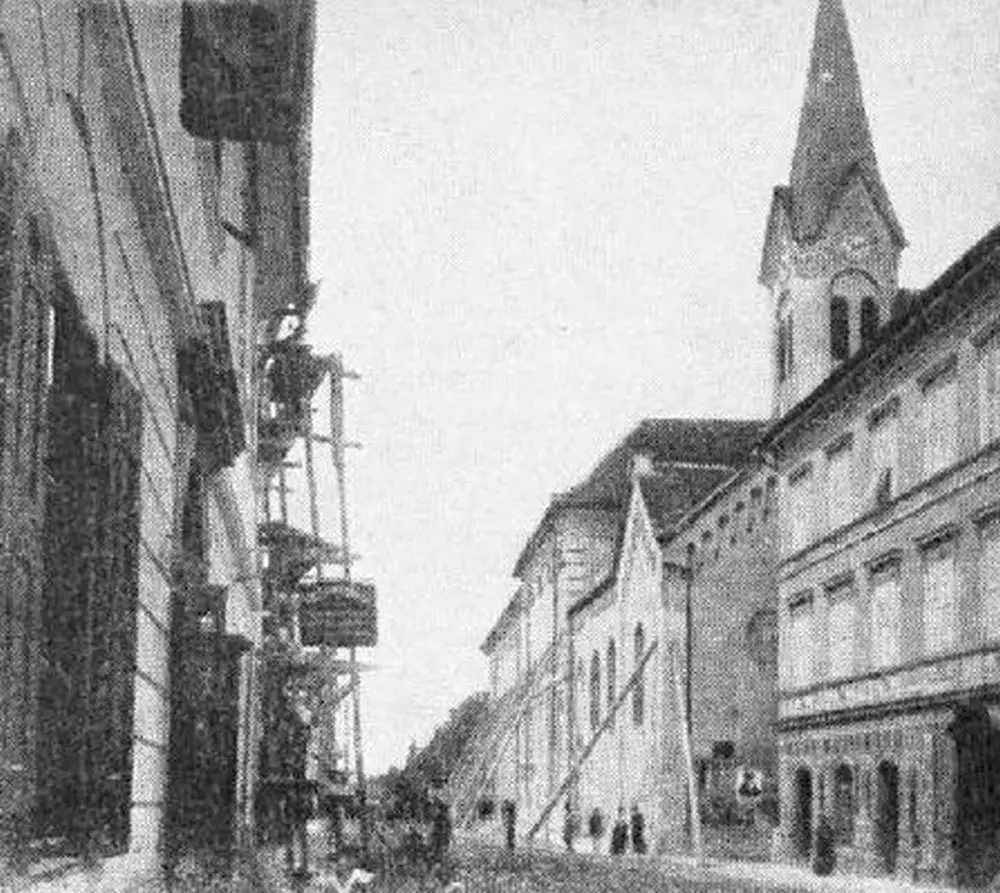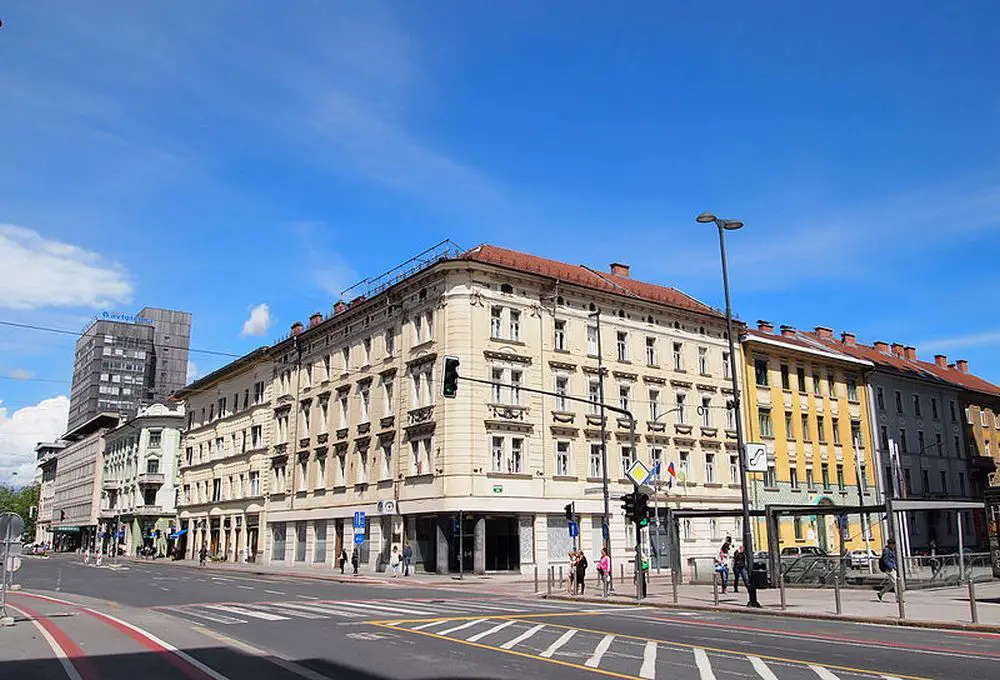Check the date at the top of the page, and you can find all the "morning headlines" stories here. You can also follow us on Facebook and get all the news in your feed.
A schedule of all the main events involving Slovenia this week can be found here
This summary is provided by the STA:
Šarec defends course in SOVA hiring inquiry
BRDO PRI KRANJU - PM Marjan Šarec denied claims that oversight of the SOVA intelligence agency had been prevented. Taking a swing at the opposition-led parliamentary oversight commission, he insisted the public employees inspectorate and not the commission was responsible for investigating allegations that he had intervened for a friend to get a job at SOVA. Speaking on the sidelines of a conference at Brdo estate, Šarec said that everyone would be informed about the findings. In Facebook post he suggested the commission had become "a politicised body in the service of certain figures from the opposition".
Cerar urges dialogue in Spain, says US Syria withdrawal mistake
LJUBLJANA - Foreign Minister Miro Cerar commented on developments in Spain in the wake of the prison sentences handed down on Catalan leaders by saying he believed the situation should be addressed through dialogue and in a democratic manner. Speaking to the parliamentary Foreign Policy Committee, he said that Catalan leaders could appeal against the rulings in Spain and abroad. He also expressed the view that the US's withdrawal from northern Syria was a geostrategic mistake.
MPs want more funds for diplomatic missions
LJUBLJANA - The parliamentary Foreign Policy Committee discussed the draft state budgets for 2020 and 2021, focussing on the Foreign Ministry's budget. The funds are budgeted to increase from EUR 94 million this year to EUR 100.4 million in 2020 and EUR 112.6 million in 2021. Minister Miro Cerar said the rise was mostly due to Slovenia's EU presidency in the second half of 2021, which would cost the country EUR 80 million. Cerar as well as MPs would also like more funds for diplomatic and consular missions.
Minister orders audit after banned meat additive scandal
LJUBLJANA - Agriculture Minister Aleksandra Pivec decided to launch an internal audit in the government body in charge of food safety following its late reporting on the discovery of a banned additive in ground meat sold in five shops in Slovenia. The minister told the press that she wanted "to examine the story in detail" with the audit in the Administration for Food Safety, Veterinary Sector and Plant Protection, which only recently made public the discovery of the banned additive in samples taken in June. "A number of questions need to be answered ... and I want to get to the bottom of it. I will find the one who is responsible for this, if necessary," Pivec said.
Illegal migration slowed down in September
LJUBLJANA - The Slovenian police recorded a drop in illegal migration in September, however the number of illegal border crossings in the first nine months of the year is still 70.5% above last year's figure. Since the beginning of the year, police handled 11,786 cases of people crossing into the country illegally. More than 3,000 of them were from Pakistan, and another 1,600 from Algeria and 1,300 from Afghanistan. The number of those turned away at the border rose by 14% year-on-year to 3,397.
President welcomes four new ambassadors
LJUBLJANA - President Borut Pahor received the credentials of four new non-residential ambassadors, Armenia's Ashot Hovakimian, Morocco's Azzeddine Farhane, South Korea's Shin Chae-hyun and Ghana's Eudora Hilda Quartey Koranteng. Based in Prague, Hovakimian has most recently served as Armenia's deputy minister of foreign affairs. Farhane, a career diplomat, will cover Slovenia from Paris. Ambassador Shin is based in Vienna and Ambassador Eudora Hilda Quartey Koranteng in Rome.
Situation in wake of Adria shutdown stabilising
LJUBLJANA - Adria Airways's receivership caused serious disruption at Ljubljana airport and impacted on Ljubljana tourism, but the situation is slowly getting back to normal as other carriers are restoring Adria's links with SWISS launching scheduled flights between Zurich and Ljubljana today. The airport saw a 10% year-on-year drop in passenger numbers in September. Turizem Ljubljana registered a 10-20% decrease in the number of announced participants in business events and conferences for the second half of September and October. Adria's official receiver Janez Pustatičnik estimated the cost of receivership at EUR 685,622, most of which, EUR 400,000, will go for wages of people handling the procedure.
National security conference calls for expanded police powers
LJUBLJANA - The Day of National Security conference heard calls in favour of beefing up police powers and policing technology to adapt to modern reality. Also highlighted was the need for cooperation between police and other security bodies. Interior Ministry Boštjan Poklukar said that legislative changes were in the pipeline after the Constitutional Court annulled provisions allowing automatic license plate recognition. Defence Minister Karl Erjavec argued that security institutions should be protected against political bickering, and transparent oversight secured.
Slovenia opens consulate in Katovice to support business ties
KATOVICE, Poland - Economic Development and Technology Minister Zdravko Počivalšek, accompanied by a business delegation, took part in a bilateral conference on investment potentials during a two-day visit in Katovice, Poland. He also opened an honorary consulate there on Tuesday. The ministry said that Katovice was a key business hub that generates 13% of the country's GDP. Slovenia's new honorary consul is Tomasz Zjawiony, the head of the city's Chamber of Trade and Industry.
Publisher Delo preparing ground for layoffs
LJUBLJANA - Delo, the largest newspaper publisher in Slovenia, is preparing ground for major staff cut-backs due to a drop in newspaper and magazine sales, and advertising revenue. It is not clear yet how many staff will lose their jobs, but media reports suggest at least 30 people will be made redundant. Delo currently employs 322 people, including 150 journalists. Unionist Simona Fajfar, called the planned layoffs a "disaster". Delo saw its net profit slashed by 46% to EUR 598,000 last year.
Redundancies looming at dairy Mlekarna Celeia
ARJA VAS - Mlekarna Celeia, the Arja Vas-based dairy employing more than 220 workers, is to lay off between 30 and 45 staff on fixed-term contracts according to unofficial information. The company told the STA it was planning a set of measures to raise productivity in a bid to improve business results and secure long-term development. The co-operatives-owned dairy saw its revenue increase by 2% in 2018 to EUR 61 million, but incurred a loss of EUR 270,000 after generating a profit of EUR 500,000 in 2017.
Report reveals new contentious payments at Ljubljana University
LJUBLJANA - After a number of revelations showing that the Ljubljana and Maribor universities paid out millions of euros to professors in addition to their salaries, the commercial broadcaster POP TV reported about internal audits at the University of Ljubljana showing that nearly EUR 12 million had been paid to 200 employees in addition to their salaries between 2016 and 2018. The funds were paid out on the bases of freelance contracts.
Police welcome eagerly-awaited multi-purpose helicopter
BRNIK - An AgustaWestland AW169 helicopter was welcomed at the helipad of the airborne police unit at the Ljubljana airport, in what is an essential addition to the police fleet which has so far numbered only two airworthy aircraft. The eagerly-awaited twin-engine, 10-seat helicopter will be used for all police tasks and is a major addition to the fleet, said Dejan Kink, the commander of the airborne police unit, told the press. Worth EUR 14.6 million, this is the first new helicopter in the last 12 years at the helipad. It is expected to be fully operational in half a year.
Slovenian PEN joins protest against jailing of Catalan authors
LJUBLJANA - The Slovenian PEN Centre joined the protest by PEN International against the prison sentences imposed on the Catalan writers and civil society leaders Jordi Sanchez and Jordi Cuixart by the Spanish Supreme Court. While PEN International said that the nine-year prison sentences for Sanchez and Cuixart were "shocking" and that they must be annulled, the Slovenian organisation called on the government and the highest authorities in the country to "take a clearer and more resolute stance on the developments in Spain and the trampling on the human rights."
German translations in focus of Slovenia's Frankfurt fair promotion
FRANKFURT, Germany - Slovenian literature is being promoted at this year's Frankfurt Book Fair with a focus on German translations, as the country gears up to be the guest of honour at the world's largest book show in 2022. The country's promotion features a national stall and nine events, including a talk with Drago Jančar, who will promote his award-winning novel In Ljubezen Tudi (Wenn die Liebe Ruht), translated by Daniela Kocmut, at Das Blaue Sofa (Blue Sofa), the most prestigious stage at the fair.
On World Food Day, calls for safe and quality food
LJUBLJANA - On World Food Day, a panel debate featuring various stakeholders heard that cooperation between agriculture, education, environment and healthcare was needed to secure safe and healthy food, in addition to awareness-raising campaigns. Agriculture Minister Aleksandra Pivec said that food in Slovenia was of very good quality, but there should be more organic food. Statistics show that Slovenian consumers spend EUR 1,400 per capital on food a year. Slovenia imported 1.7 billion worth of food and exported EUR 1 billion in 2018.
Visiting Ljubljana? Check out what's on this week, while all our stories on Slovenia, from newest to oldest, are here
If you're learning Slovenian then you can find all our dual texts here







